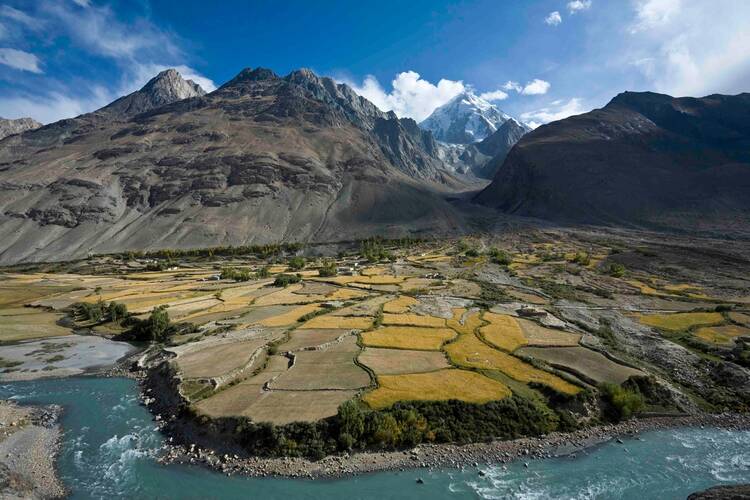The personal reflections of Pope Francis in “Laudato Si’” serve as a contemplatio, an “awe-filled contemplation of creation” (No. 125). This contemplation opens up in us a growing desire to savor the mystical presence of God. God’s love is experienced as a suffusing and sustaining activity in creation, where the poor of today and tomorrow struggle to find a place in our common home.
The philosophical-theological and moral framework of “Laudato Si’” makes believers of Christianity and the world religions (re)value our particular faith-traditions. The encyclical’s framework posits that creation is “of the order of love” (No. 77), while the earth is a given, God’s gift to all (No. 67, 93). The anthropos is created in God’s likeness and image (No. 65) who enjoys “closely intertwined relationships: with God, with our neighbor and with the earth” (No. 66). But this harmony is ruptured by sin that spawns the unbridled exploitation of nature. Yet creation as a whole remains “open to God’s transcendence, within which it develops” (No. 79) and humankind are called to be co-creators of creation (No. 80) and to restore the harmony. Co-creators must morally ensure that “the earth is essentially a shared inheritance, whose fruits are meant to benefit everyone” (No. 93).
This encyclical’s affirmation of life as an interrelated (No. 70, 138, 141, 240) web of multidimensional existence articulates and elevates (No. 143, 144) the diverse mystical cosmologies of sustainability of the indigenous (No. 146) and farming communities of rural Asia, Africa and Latin America. These communities delightfully affirm that “there is a mystical meaning to be found in a leaf, in a mountain trail, in a dew drop, in a poor person’s face” (No. 223) because “the Spirit of life dwells in every living creature" (No. 88). Their mystical cosmology spurs us to contemplate the awe-inspiring truths of the encyclical that “the universe unfolds in God, who fills it completely” (No. 233), so that “all things are God” (No. 234) with a teleology that “creation is projected towards divinization” and the ultimate “unification with the Creator” (No. 236).
The call for integral ecology (No. 138-162, 230, 255) is refreshing and challenging. Integral ecology embraces the economic, social, cultural and daily life, calls for a preferential option for the poor (No. 158) of today and the future (No. 162), a perennial commitment to both intra- and inter-generational solidarity (No. 162) and dialogue for human fulfillment. Integral ecology and sustainable and equitable development (No. 192) are conjointly attainable only with conversion (No. 218) toward “a prophetic and contemplative lifestyle” of “less is more” (No. 222). This balanced lifestyle values “a capacity for wonder” and the “interior peace closely related to care for ecology and for the common good” (No. 225).
The encyclical offers a noteworthy vision: educate the generation of today and tomorrow (No. 159-162) to overcome the reductionist techno-paradigm (No. 106-108), the pervasive practical relativism (No. 123) that perpetuates the constant schizophrenia (No. 118) in a postmodern society. This eco-education calls for (a) “critique of the “myths” of a modernity grounded in a utilitarian mindset”; (b) the restoration of the “ecological equilibrium, establishing harmony within ourselves, with others, with nature and other living creatures, and with God”; (c) the development of an ethics of ecology that enables “people, through effective pedagogy, to grow in transcendence, solidarity, responsibility and compassionate care of the poor and creation” (No. 210).
Furthermore, the envisioned “ecological citizenship” for “environmental responsibility” (No. 211) calls for pragmatic eco-sensitive practices borne of “sound virtues” and “good habits,” ranging from “avoiding the use of plastic and paper, reducing water consumption, separating refuse, cooking only what can reasonably be consumed, showing care for other living beings, using public transport or car-pooling, planting trees, turning off unnecessary lights, or any number of other practices” (No. 211).
The encyclical offers all “a sacred space” for contemplation and a “safe space” for dialogue between science, technology, politics, economics, cultures and religions to ensure an awakening of “a new reverence for life, the firm resolve to achieve sustainability, the quickening of the struggle for justice and peace, and the joyful celebration of life” (No. 207).








